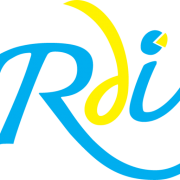ผลการให้คำปรึกษากลุ่มตามแนวคิดการพิจารณาเหตุผล อารมณ์ และพฤติกรรม ต่อพฤติกรรมเอื้อต่อสังคมของนิสิตระดับปริญญาตรี
คำสำคัญ:
พฤติกรรมเอื้อต่อสังคม, การให้คำปรึกษากลุ่ม, การพิจารณาเหตุผล, อารมณ์, พฤติกรรมบทคัดย่อ
การวิจัยนี้มีวัตุประสงค์เพื่อ ศึกษาผลของการให้คำปรึกษากลุ่มตามแนวคิดการพิจารณาเหตุผล อารมณ์ และพฤติกรรม ต่อพฤติกรรมเอื้อต่อสังคมของนิสิตระดับปริญญาตรี กลุ่มตัวอย่างคือ นิสิตระดับปริญญาตรี คณะดนตรีและการแสดง มหาวิทยาลัยบูรพา ปีการศึกษา 2559 ที่ผลคะแนนจากมาตรวัดพฤติกรรมเอื้อต่อสังคม อยู่ในระดับต่ำ และอาสาสมัครเข้าร่วมการทดลอง จำนวน 30 คน สุ่มออกเป็นสองกลุ่ม คือ กลุ่มทดลอง จำนวน 15 คน และกลุ่มควบคุม จำนวน 15 คน ในกลุ่มทดลองได้รับการให้คำปรึกษากลุ่ม จำนวน 10 ครั้ง ครั้งละ 60 นาที สัปดาห์ละ 2 ครั้ง ต่อเนื่องเป็นระยะเวลา 5 สัปดาห์ ส่วนกลุ่มควบคุมไม่ได้รับการให้คำปรึกษากลุ่ม เก็บรวบรวมข้อมูลโดยการวัดผล 3 ระยะ ได้แก่ ระยะก่อนการทดลอง ระยะหลังการทดลอง และระยะติดตามผล วิเคราะห์ข้อมูลด้วยการหาค่าเฉลี่ย ส่วนเบี่ยงเบนมาตรฐาน และสถิติทดสอบที ผลการวิจัยปรากฏว่า กลุ่มทดลองมีคะแนนพฤติกรรมเอื้อต่อสังคม ในระยะหลังการทดลองและระยะติดตามผล สูงกว่ากลุ่มควบคุม อย่างมีนัยสำคัญทางสถิติที่ระดับ .05 และกลุ่มทดลองมีคะแนนพฤติกรรม เอื้อต่อสังคมในระยะหลังการทดลอง และระยะติดตามผล สูงกว่าระยะก่อนการทดลองอย่างมีนัยสำคัญทางสถิติที่ระดับ .05
เอกสารอ้างอิง
สุชาดา พันธ์รัตน์ และวรรณี เจตจำนงนุช. (2559). การพัฒนาโปรแกรมส่งเสริมพฤติกรรมเอื้อต่อสังคมโดยใช้ กระบวนการเรียนรู้จากการสังเกตสำหรับนักเรียนชั้นประถมศึกษาปีที่ 5. Online Journal of Education วารสารอิเล็กทรอนิกส์ทางการศึกษา. 11 (3): 133-148.
อธิวัฒน์ รัตนวงศ์แข, ศจีมาศ ณ วิเชียร และปิ่นกนก วงศ์ปิ่นเพชร. (2558). ผลการพัฒนาพฤติกรรมเอื้อต่อ สังคมของบุคลากรสายสนับสนุน มหาวิทยาลัยเอกชนแห่งหนึ่ง ในกรุงเทพมหานคร. วารสารวิชาการสมาคมสถาบันอุดมศึกษาเอกชนแห่งประเทศไทย. 21 (2): 103-110.
Baumeister, R. F., & Bushman, B. J., (2011). Social Psychology and Human Nature. 2 nd ed. Belmont, CA: Wadsworth.
Bennett, C., Barlow, J., Huband, N., Smailagic, N., & Roloff, V. (2013). Group-based parenting programs for improving parenting and psychosocial functioning: A systematic review. Journal of the Society for Social Work and Research. 4 (4): 300-332.
Bishop, M., & Fleming, A. R. (2015). Rational emotive behavior therapy. Counseling Theories and Techniques for Rehabilitation and Mental Health Professionals. 21 (1): 108- 132.
Caprara, G. V., Steca, P., Zelli, A., & Capanna, C. (2005). A New scale for measuring adults’ prosocialness. European Journal of Psychological Assessment. 21 (2): 77–89.
Caruso, C., Angelone, L., Abbate, E., Ionni, V., Biondi, C., Di Agostino, C., & Mezzaluna, C. (2017). Effects of a REBT based training on children and teachers in primary school. Journal of Rational-Emotive & Cognitive-Behavior Therapy. 36 (1): 1-14.
Celik, C. B., & Odaci, H. (2017). Psycho-educational group intervention based on reality therapy to cope with academic procrastination. Journal of Rational-Emotive & Cognitive-Behavior Therapy. 5 (1): 1-14.
Cingel, D. P., & Krcmar, M. (2017). Prosocial television, preschool children’s moral judgments, and moral reasoning: The Role of social moral intuitions and perspective- taking. Communication Research. 93 (1): 112-127.
Corey, G. (2015). Theory and practice of counseling and psychotherapy. United States : Nelson Education.
David, D., Cotet, C., Matu, S., Mogoase, C., & Stefan, S. (2018). 50 years of rational-emotive and cognitive-behavioral therapy: A systematic review and meta-analysis. Journal of Clinical Psychology. 74 (3): 304-318.
David, O. A., Capris, D., & Jarda, A. (2017). Online coaching of emotion-regulation strategies for parents: Efficacy of the online rational positive parenting program and attention bias modification procedures. Frontiers in psychology. 8 (3): 500-510.
Dovidio, J. F., Piliavin, J. A., Schroeder, D. A., & Penner, L. A. (2017). The Social Psychology of Prosocial Behavior. Psychology Press.
Edmonds, W. A., & Kennedy, T. (2017). An Applied Guide to Research Designs. SAGE Thousand Oaks: Publications.
Ellis, A. (2011). Rational emotive behavior therapy. Current Psychotherapies. 9: 196-234.
Glick, B., & Gibbs, J. C. (2010). Aggression Replacement Training: A Comprehensive Intervention for Aggressive Youth. United States of America: Research Press.
Kostelnik, M. J., Gregory, K. M., Soderman, A. K., & Whiren, A. P. (2012). Guiding Children’s Social Development and Learning. 7th ed. Belmont. CA: Wadsworth.
MacLaren, C., Doyle, K. A., & DiGiuseppe, R. (2016). Rational emotive behavior therapy (REBT): Theory and practice. Contemporary Theory and Practice in Counseling and Psychotherapy. 12 (5): 233-263.
Myers, D. G. (2012). Social Psychology. 10 th ed. New York, NY: McGraw-Hill Companies.
Obiagaeri, E. R. (2018). Efficacy of rational emotive behavioural therapy and cognitive behavior therapy in reducing aggressive behavior among secondary school students in Abia State. International Journal of Humanities Social Sciences and Education. 5 (1): 77-82.
Oltean, H. R., & David, D. O. (2017). A meta-analysis of the relationship between rational beliefs and psychological distress. Journal of Clinical Psychology. 25 (4): 1-13.
Powers, J. D., Swick, D. C., Wegmann, K. M., & Watkins, C. S. (2016). Supporting prosocial development through school-based mental health services: A multisite evaluation of social and behavioral outcomes across one academic year. Social Work in Mental Health. 14 (1): 22-41.
Saelid, G. A., & Nordahl, H. M. (2017). Rational emotive behaviour therapy in high schools to educate in mental health and empower youth health. A randomized controlled study of a brief intervention. Cognitive Behaviour Therapy. 46 (3): 196-210.
Steins, G., & Haep, A. (2015). Social learning and rational-emotive education: An Exploratory investigation of students’ perspective. Psychology. 6 (9): 1096-1107.
Ugwoke, S. C., Eseadi, C., Igbokwe, C. C., Chiaha, G. T., Nwaubani, O. O., Orji, C. T., & Onu, E. A. (2017). Effects of a rational-emotive health education intervention on stress management and irrational beliefs among technical college teachers in Southeast Nigeria. Medicine. 96 (31): 1-6.
Van der Graaff, J., Carlo, G., Crocetti, E., Koot, H. M., & Branje, S. (2017). Prosocial behavior in adolescence: Gender differences in development and links with empathy. Journal of Youth and Adolescence. 47 (1): 1086-1099.
Warren, J. M. (2013). School counselor consultation: Teachers’ experiences with rational Emotive behavior therapy. Journal of Rational-Emotive & Cognitive-Behavior Therapy. 31 (1): 1-15.
Wood, A. G., Barker, J. B., Turner, M., & Sheffield, D. (2017). Examining the Effects of Rational Emotive Behavior Therapy (REBT) on Performance Outcomes in Elite Paralympic Athletes. Scandinavian journal of Medicine & Science in Sports. 28 (1): 329–339.
Xu, L., & Liu, H. (2017). Effects of Rational Emotive Behavior Therapy (REBT) Intervention Program on Mental Health in Female College Students. NeuroQuantology. 15 (4): 156-161.
Yanagida, T., Strohmeier, D., & Spiel, C. (2016). Dynamic change of aggressive behavior and victimization among adolescents: Effectiveness of the ViSC program. Journal of Clinical Child & Adolescent Psychology. 7 (1): 1-15.
ดาวน์โหลด
เผยแพร่แล้ว
รูปแบบการอ้างอิง
ฉบับ
ประเภทบทความ
สัญญาอนุญาต
บทความที่ได้รับการตีพิมพ์เป็นลิขสิทธิ์ของ มหาวิทยาลัยราชภัฏธนบุรี
ข้อความที่ปรากฏในบทความแต่ละเรื่องในวารสารวิชาการเล่มนี้เป็นความคิดเห็นส่วนตัวของผู้เขียนแต่ละท่านไม่เกี่ยวข้องกับมหาวิทยาลัยราชภัฏธนบุรีและบุคลากรท่านอื่นๆในมหาวิทยาลัยฯ แต่อย่างใด ความรับผิดชอบองค์ประกอบทั้งหมดของบทความแต่ละเรื่องเป็นของผู้เขียนแต่ละท่าน หากมีความผิดพลาดใดๆ ผู้เขียนแต่ละท่านจะรับผิดชอบบทความของตนเองแต่ผู้เดียว






